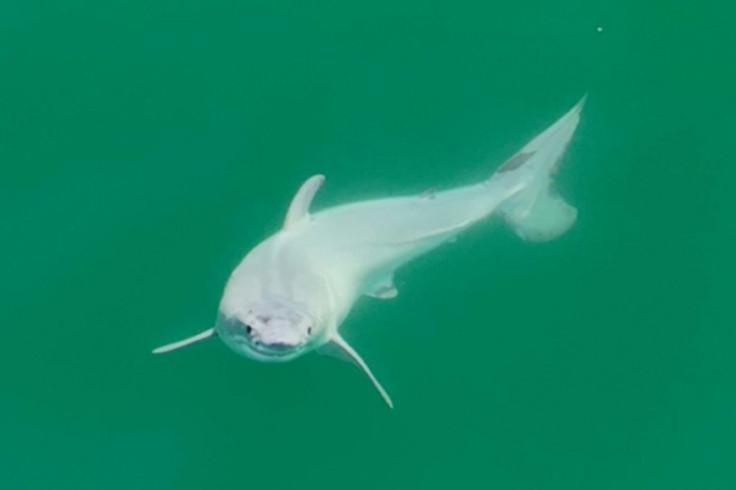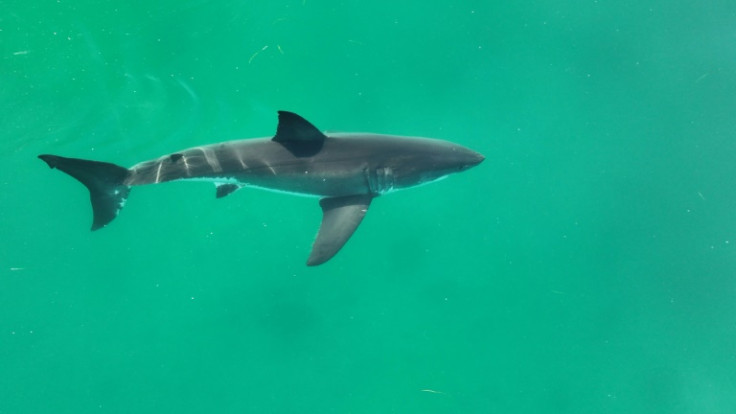
Drone footage of a young shark emerging to the ocean surface could be the first sighting of a newborn great white, according to new research, potentially revealing a birthing site for the threatened ocean predators.
While juvenile great whites have been previously spotted in the wild, experts said footage of a newly born pup, believed to be just hours old because of its rounded dorsal fin, could shed light on a longstanding mystery in shark science and improve conservation efforts.
"Where white sharks give birth is one of the holy grails of shark science," said wildlife filmmaker and photographer Carlos Gauna, who captured the moment on camera.
"No one has ever been able to pinpoint where they are born, nor has anyone seen a newborn baby shark alive."
In early July 2023, Gauna -- known online as The Malibu Artist -- and UC Riverside biology doctoral student Phillip Sternes observed an apparently heavily pregnant great white shark off the Californian coast near Santa Barbara.
The shark appeared to dive deep into the water and not long after, a smaller shark emerged at the surface, and looked directly towards the camera hovering above.
Gauna said they initially thought the completely white little shark was an albino, because great white sharks -- referred to only as white sharks by scientists -- are actually grey on top and white only on their undersides.
But then they saw the shark appear to shed the white layer from its body as it clumsily swam around, he told AFP.
In an account of the sighting, published in the journal Environmental Biology of Fishes on Monday, Gauna and Sternes said they now believe that this white "skin" was in fact an embryonic layer of intrauterine milk, which is secreted in utero to nourish shark pups and is shed soon after birth.
They also gave an alternative explanation -- that the five-foot (1.5 metre) long shark could have been suffering from a skin condition.
Southern California is known to be a nursing ground for young white sharks, while the central Californian coast has been tipped as a potential birthing spot and Gauana had seen pregnant and young white sharks in the area before this sighting.
"This may well be the first evidence we have of a pup in the wild, making this a definitive birthing location," Sternes said in a press release, adding that more research would be needed to confirm the area more generally as a birthing ground.
If it is, Sternes said that would put pressure on lawmakers to protect the waters.
"This paper rightly claims that it is the first immediate post-birth sighting of a white shark," said Heike Zidowitz, senior programme officer for marine species conservation at the World Wildlife Fund in Germany, who was not associated with the study.
That would be significant in helping to strengthen conservation of great whites.
The sharks are listed as vulnerable by the International Union for the Conservation of Nature, which says that, as top predators, great white sharks help maintain the intricate ocean food webs.
While shark attacks on humans are relatively rare, the great whites have a fearsome reputation that can lead to campaigns that kill not only endangered sharks, but also other non-target species.
"White sharks are one of the most wide ranging sharks and knowing exactly where they go to give birth will enable us to protect these areas from man-made negative impacts, such as fishing activities, habitat destruction, shipping noise, etc," Zidowitz told AFP.








